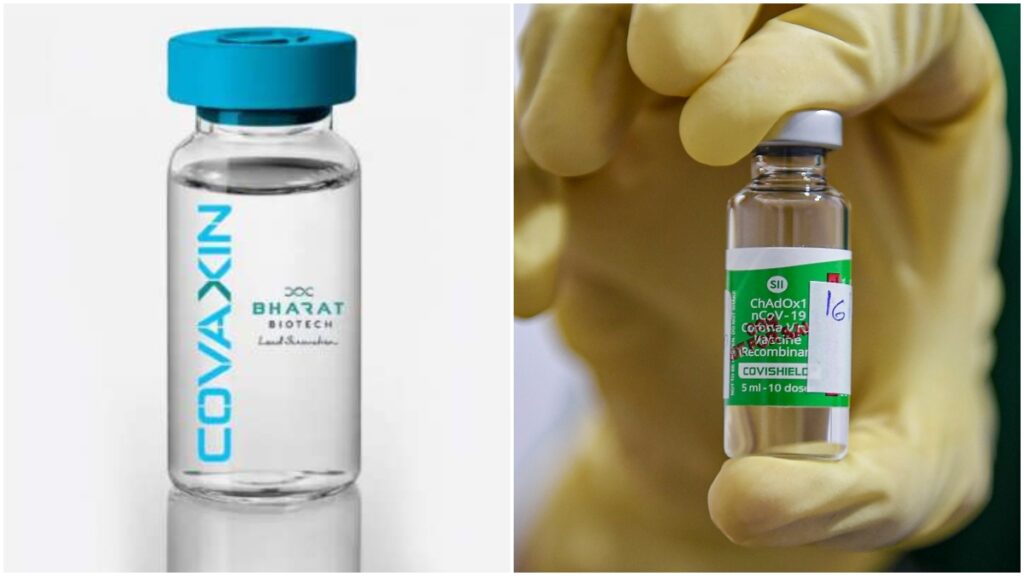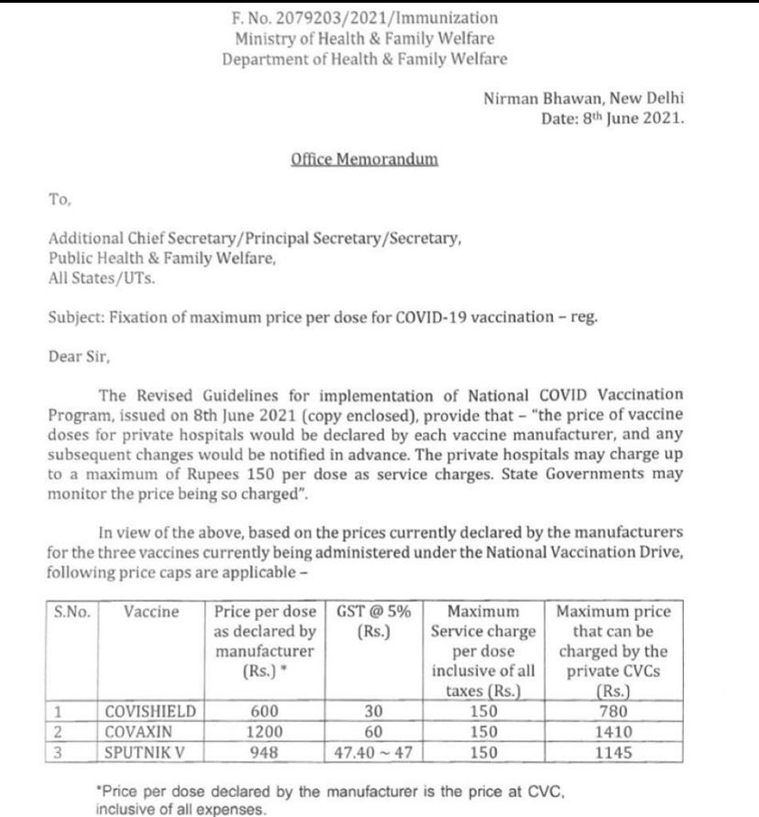
The Union Health Ministry imposed a price limitation for Covid-19 vaccination administration at private hospitals on Tuesday.
Covaxin and Covishield have maximum prices of Rs 1,410 and Rs 780 per dosage, respectively, while Russia’s Sputnik V vaccine would cost Rs 1,145 per dosage in private hospitals.
The Health Ministry advised that private vaccination centers be prosecuted for overcharging in a letter sent to all states and union territories on Tuesday. The ministry also asked states and union territories to examine the costs charged by private centers to residents on a regular basis.

The Centre had stated earlier today that it has placed an order for 25 crore doses of Covishield and 19 crore doses of Covaxin. The producers of the Covid-19 vaccine would provide 44 crore doses between August and December 2021, according to the Union Health Ministry, which also announced a 30% advance to the Serum Institute of India and Bharat Biotech for vaccine procurement.
During a press conference, Dr VK Paul, Member-Health, Niti Ayog, stated, The government has also put an order to acquire 30 crore doses of Biological E’s vaccine, which would be accessible by September.
The price limitation comes only one day after Prime Minister Narendra Modi stated that, beginning June 21, the government will distribute free vaccinations to states for immunisation of all people over the age of 18.
The Prime Minister stated that vaccine supplies will be greatly expanded in the coming days, stating that the Centre has chosen to purchase 75% of vaccines from vaccine manufacturers for free distribution to states. The PM also declared that private sector hospitals will continue to acquire 25% of vaccinations, but that the service premium over the predetermined price of the vaccine will be set at Rs 150 per dosage.
The new vaccination rules, according to opposition parties, were released after the Supreme Court questioned the Centre’s program of sponsored immunization for those aged 18 to 44. In response to the allegations, the Centre stated that it has been monitoring the execution of the decentralized immunization strategy since its debut on May 1.








